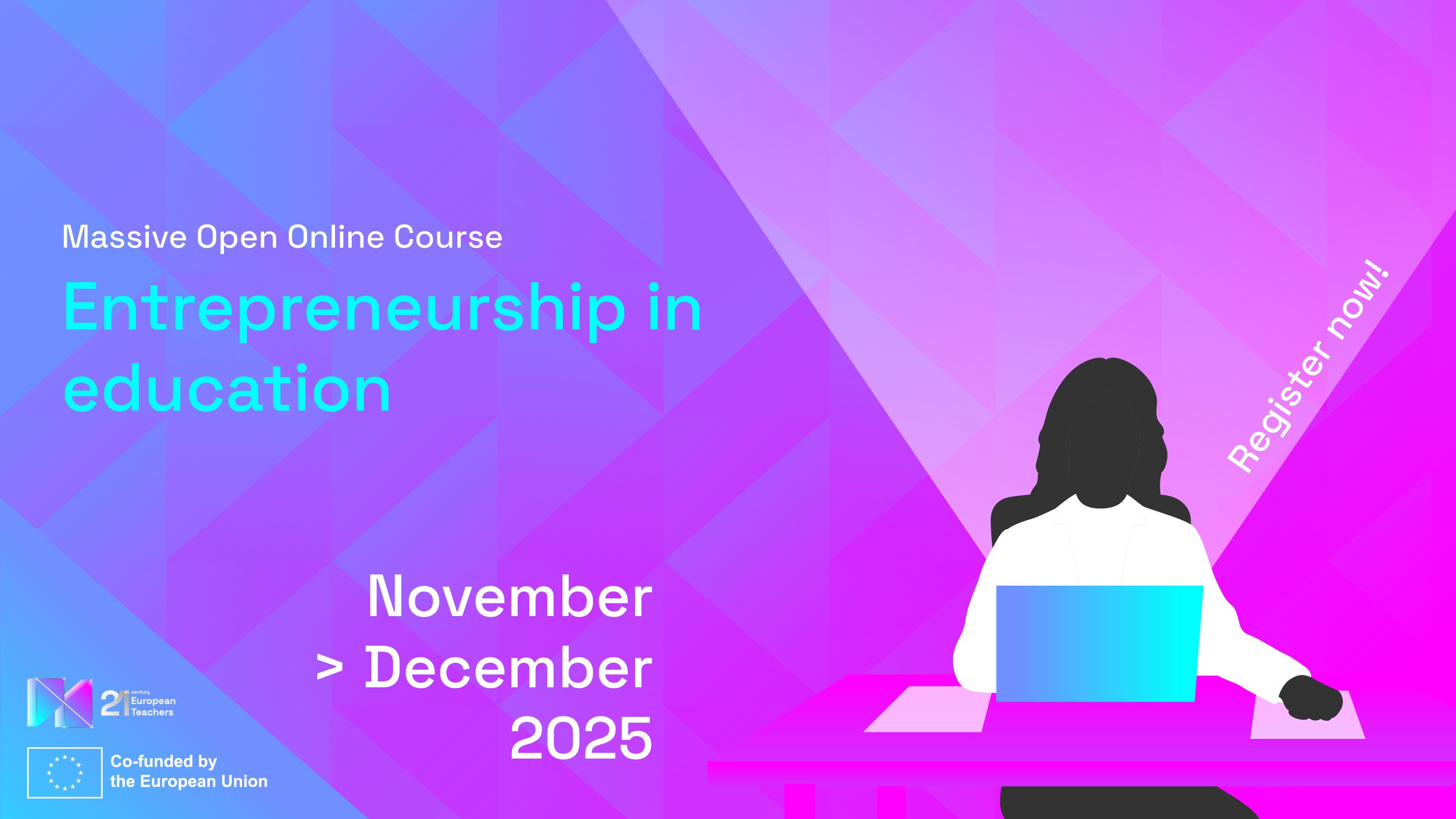This website use cookies to ensure you get the best experience on our website

Welcome to the 21st century European Teacher MOOC!
We’re thrilled to introduce the Entrepreneurship in Education course! This MOOC invites teachers to explore how entrepreneurial thinking can transform learning, helping students develop initiative, solve problems, and collaborate on meaningful projects.
MOOC starts in....
* In order to enrol after clicking the link participants need to either create a new account or enrol via their Google account. The language of the landing page can be changed to English by the participant.
Overview
This MOOC, part of the 21st Century European Teachers project, invites teachers and education enthusiasts to explore how entrepreneurial approaches can bring initiative, problem-solving, and collaboration into classrooms.
A self-paced, fully online course, designed to let you discover and apply entrepreneurial thinking in teaching on your own schedule, exploring practical methods and concepts at your convenience.
Starting Date: 17th November 2025
Estimated Effort: 1 ECTS = 28 hours of studying (pass/fail grading, certificate available upon completion)
Explore how entrepreneurship can spark creativity and initiative in your lessons. Through the co-creation model and hands-on strategies, this MOOC shows how students can learn by doing, experimenting, and collaborating.
Sections Include:
-
How to get started
Introduction to entrepreneurship in education
-
Entrepreneurship education practices
-
The co-creation model and entrepreneurship
-
Conclusion, MOOC completion, and application for a certificate
Learning objectives:
- Define entrepreneurship in the context of education
Identify and explain key concepts of entrepreneurship in education
-
Identify the role of the entrepreneurial mindset in educational settings
-
Explain the application of the co-creation model and its benefits to your work
-
Develop lesson plans that incorporate entrepreneurship and the co-creation model

Funded by the European Union. Views and opinions expressed are however those of the author(s) only and do not necessarily reflect those of the European Union or the European Education and Culture Executive Agency (EACEA). Neither the European Union nor EACEA can be held responsible for them.